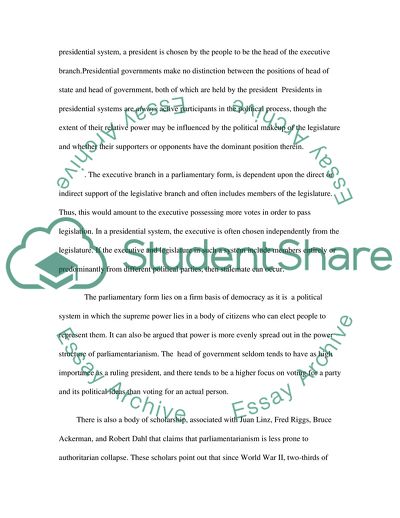Cite this document
(Parliamentary Government vs. Presidential Government Report Example | Topics and Well Written Essays - 2000 words, n.d.)
Parliamentary Government vs. Presidential Government Report Example | Topics and Well Written Essays - 2000 words. https://studentshare.org/politics/1713307-summative-assignment
Parliamentary Government vs. Presidential Government Report Example | Topics and Well Written Essays - 2000 words. https://studentshare.org/politics/1713307-summative-assignment
(Parliamentary Government Vs. Presidential Government Report Example | Topics and Well Written Essays - 2000 Words)
Parliamentary Government Vs. Presidential Government Report Example | Topics and Well Written Essays - 2000 Words. https://studentshare.org/politics/1713307-summative-assignment.
Parliamentary Government Vs. Presidential Government Report Example | Topics and Well Written Essays - 2000 Words. https://studentshare.org/politics/1713307-summative-assignment.
“Parliamentary Government Vs. Presidential Government Report Example | Topics and Well Written Essays - 2000 Words”. https://studentshare.org/politics/1713307-summative-assignment.


